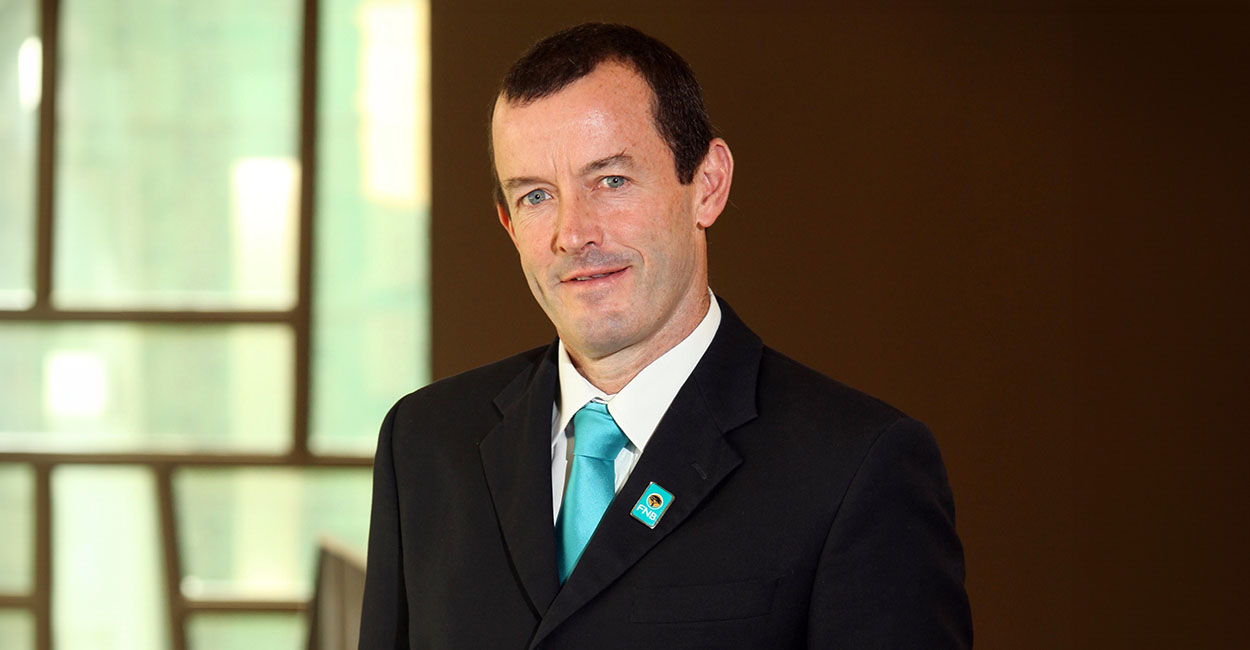MAIN IMAGE: Tony Clarke, MD of the Rawson Property Group, Samuel Seeff, chairman of the Seeff Property Group, Rhys Dyer, CEO of ooba Group, Gerhard Kotzé, CEO of RealNet Properties, Dr Andrew Golding, chief executive of the Pam Golding Property group, Herschel Jawitz, CEO of Jawitz Properties, Berry Everitt, CEO of the Chas Everitt International property group
Editor
“Between SONA and the Budget Speech, the general sentiment among South Africa’s real estate agents appears largely unimpressed, with a side-helping of disappointment”, shares Tony Clarke, MD of the Rawson Property Group, “We were expecting a conservative approach, unfortunately for the property industry, the government’s chosen route to boost revenue is centred more on taxation than on direct economic stimuli.
As a major contributor to the GDP, the real estate industry has a lot to offer the economy and the public purse, and we were hoping to see this potential recognised and a greater emphasis placed on stimulating market activity”.
So, what are the takeaways from the 2024 Budget Speech? Industry leaders share their insights.
Taxes
“Although we would have liked to have seen a cut in property taxes – Transfer Duty and Capital Gains Tax – as a boost to the property market, we are pleased that there will at least be no hikes for this tax year, commented Samuel Seeff, chairman of the Seeff Property Group, “The property market is, however, disappointed that the minister did not take the opportunity to increase the transfer duty exemption threshold from R1.1 million, especially as this covers the more affordable price bands where many buyers are facing affordability challenges”.
Rhys Dyer, CEO of ooba Group, believes that “While middle and lower-income earners are largely shielded from tax increases, the upper end of the market may still be impacted by bracket creep, which could burst the surprisingly strong bubble the luxury property market has been in since the start of the COVID-19 pandemic. Bracket creep is a phenomenon seen in high inflationary environments, where inflation pushes income into higher tax brackets, reducing the purchasing power of higher-income earners.
Dyer shares that the 2024 Budget Speech did leave the industry disappointed with Treasury’s decision not to increase the threshold for transfer duty exemption, keeping it at R1.1 million or lower, as announced in 2023. “A raised threshold for transfer duty would be a major boost for the price-conscious first-time buyer segment in particular, as transfer duty is one of the highest additional costs when purchasing a home.”
Gerhard Kotzé, CEO of the RealNet property group, believes that the budget will probably keep most homeowners and buyers in a “holding pattern” until mid-year, when the General Election will be over, and inflation and interest rates will hopefully be on a clear downward course.
He shares that the reason is that most consumers will want to see how the various tax measures contained in the Budget will affect them personally before making any decisions about buying or investing in a new property. The budget includes increases in the duties on alcohol, tobacco, and vape products, for example, and an increase in the carbon fuel tax. Still, it does not include any increase in the general fuel levy or the road accident fund levy.
The Minister has also declined to adjust the various personal income tax brackets or rebates to account for inflation, which may push someone who receives a salary increase this year into a higher tax bracket and require them to pay a higher percentage of their earnings to SARS. This is known as bracket creep and is expected to deliver a significant percentage of the R15bn in extra revenue needed to cover an increase in SA’s debt-servicing cost – without alienating votes in the way that a simple VAT increase would most likely have done.
Solar installations
Dr Andrew Golding, chief executive of the Pam Golding Property group, believes that “It is regrettable that the budget did not seize the opportunity to extend the solar rooftop tax incentive for residential properties, as this expires at the end of this month (February 2024). This enabled households who invested in solar panels to receive 25% of their solar spend back as a tax credit.
Apart from hoping for an extension of this incentive, it would have benefited homeowners if it had included additional costs such as generators, inverters, and batteries – plus those used for security purposes – among others.
While the business incentive for solar panels will run until 2025, homeowners beset with the soaring costs of electricity, fuel and food, among others, and dealing with ongoing loadshedding, would have benefited from a much-needed extension amid the country’s energy crisis”.
Challenges
Herschel Jawitz, CEO of Jawitz Properties, highlights some of the ongoing challenges, “In a high inflationary environment with rising fuel costs, high food costs and high interest rates, consumers, who account for nearly 40% of government revenue and get very little back, are now expected to pay another R15 billion to make up for an inefficient government that is simply unable to generate any economic growth to drive increased revenue. In the current environment, the lack of any adjustment to the tax tables will be a bitter pill to swallow for taxpayers who actually pay tax”.
Positive signs
Berry Everitt, CEO of the Chas Everitt International property group, shares that the Budget contains several allocations and provisions to rebuild investor and business confidence in SA and should thus be positive for property in the medium to long term. These include:
Plans to invest more than R943bn over the next three years in the refurbishment, maintenance and building of public infrastructure, and a renewed commitment to making any debt relief offered to SOEs such as Eskom and Transnet contingent on them being more open to public /private sector partnerships. This is important because extensive loadshedding and dysfunctional rail and port facilities are the biggest obstacles to the large-scale new investment, economic growth and job creation necessary for a healthy and expanding economy and property industry.
The allocation of R62bn over the next three years for job creation programmes,
including R7,4bn this year for the Presidential Employment Initiative and a whopping R481bn for education and training. This is a critical expenditure because it addresses the urgent need to reduce SA’s very high unemployment rate. This is obviously difficult to do during low economic growth. Still, it has a much greater chance of success when resources are available to help young people improve their skills, gain work experience and start small businesses (SMMEs).
Where do we stand (for now)?
Seeff says conditions remain particularly favourable for property buyers. The muted price growth and favourable mortgage lending conditions support the market, and buyers can find good value. Deposit requirements remain relatively low while first-time buyers are still able to secure full loans and, in some instances, inclusive of costs.
While the hoped-for transfer duty threshold increase did not come to pass, Dyer still believes that interest rate cuts will be the silver lining that South African homeowners so desperately need. “We anticipate an interest rate cut from as early as May 2024, but with inflation creeping up again in January 2024, this could potentially be delayed to July 2024, followed by several further rate cuts in the last half of 2024.”
“As a result, consumer confidence will start to rise, especially among first-time homebuyers, who we expect to represent over 50% of our customers by the last quarter of this year.”








